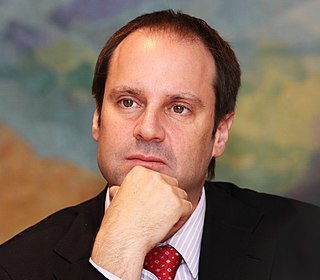Top 37 Quotes & Sayings by Jeffrey Skoll
Explore popular quotes and sayings by a Canadian businessman Jeffrey Skoll.
Last updated on April 21, 2025.
When I was 14, my dad came home one day and told us he had cancer. It was looking pretty bad. And I remember him saying how afraid he was that he hadn't gotten to do the things he wanted to do during his life. He had surgery and survived. And he's still alive today, thank God. But it made a big impact on me.
When I first moved to Hollywood from Silicon Valley, I had some misgivings. But I found that there were some advantages to being in Hollywood. And, in fact, some advantages to owning your own media company. And I also found that Hollywood and Silicon Valley have a lot more in common than I would have dreamed.
Philanthropy is all about making a positive difference in the world by devoting your resources and your time to causes you believe in. In my case, I like to support causes where "a lot of good comes from a little bit of good," or, in other words, where the positive social returns vastly exceed the amount of time and money invested.
The pace at eBay was frantic and urgent. We knew that if we didn't move fast, somebody would come into the market and quash us. Participant doesn't make a lot of sense from a financial investment perspective, so it's unlikely that other people will be approaching the business in the same way. So you see less urgency; you see a thoroughness and willingness to spend extra time to get things right. Which I think is really important.
I believe that Silicon Valley is truly a place of excellence and the impact of this tiny community on the world is completely disproportionate to its size. We are the undisputed leaders of technological change. But with our abundance of talent and resources, we also have the opportunity to be the pioneers of social change and, ultimately, this may be our greatest contribution.
Social entrepreneurs come from all levels of society and from communities in nearly every country of the world. They all share the same underlying drive and passion to see their ideas through. Many of them have had a huge effect on the world, yet most people have not even heard of them - a trend we hope to change!



















